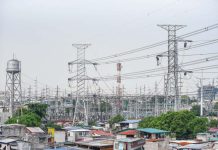
ILOILO City – The Office of the Presidential Assistant for the Visayas (OPAV) has committed to help the local government unit of Malay, Aklan to reopen Boracay Island to tourists.
This was the assurance made by Undersecretary Anthony Gerard “Jonji” Gonzales, who represented OPAV Secretary Michael Lloyd Dino, during a meeting with Malay’s Mayor Frolibar Bautista held in Boracay Island recently.
“Boracay is a tourism jewel of this country. I don’t see any reason we can’t manage the situation of the island. The national government is there support. We are willing to work with you,” Gonzales told Malay officials.
Boracay, which is part of Malay town in Aklan, drew about two million tourists in 2019. It reopened October last year and tourists started to trickle in.
However, with the suspension of air travel from the Ninoy Aquino International Airport, Boracay has become a ghost town, the undersecretary pointed out.
“If we can learn to live with COVID-19, we can open Boracay to tourists again,” he added.
OPAV’s meeting with Malay officials took place during the culmination of the rollout of the Visayas COVID-19 Vaccination Operations Center (VVOC) Manual in the three regions of Visayas.
The last leg of the cascading of the vaccination manual was conducted in various LGUs in Western Visayas.
During OPAV’s visits to the Visayas areas during the rollout, Gonzales had stressed the need for LGUs to adopt policies that will help their localities open up and reopen their economies after more than a year of the pandemic.
Gonzales said the national government is committed to help LGUs, particularly the municipality of Malay, to help the local government to better plan how they can safely reopen the island and manage the COVID-19 situation in the Island.
He cited that Cebu was the first province in the Visayas to reopen its borders to local tourists even amid the lingering threat of COVID-19.
Gonzales believes that this can also be applied in Boracay for as long as systems and processes of COVID-19 community response are in place.
“Tourism, for instance, can remain ‘business as usual’ as long as local leaders can very well manage any possible surge in COVID-19 cases,” he said.
The official urged local chief executives to be more forward looking and embrace the fact that communities now “have to live with COVID” to be able to restore livelihoods of the people.
He pointed out that “strictly implementing border controls and lockdown mechanisms” no longer applies today, as government and private leaders should have now learned about how to better manage the pandemic.
He said LGUs must think about how they can restore the economies of their localities to prevent further incidents of hunger, crime and suicide as among the negative social effects of the pandemic.
“We need to see businesses flourishing again and people having jobs. We just need to wear masks. We can learn to live with COVID,” Gonzales said. (PIA-6/OPAV)



